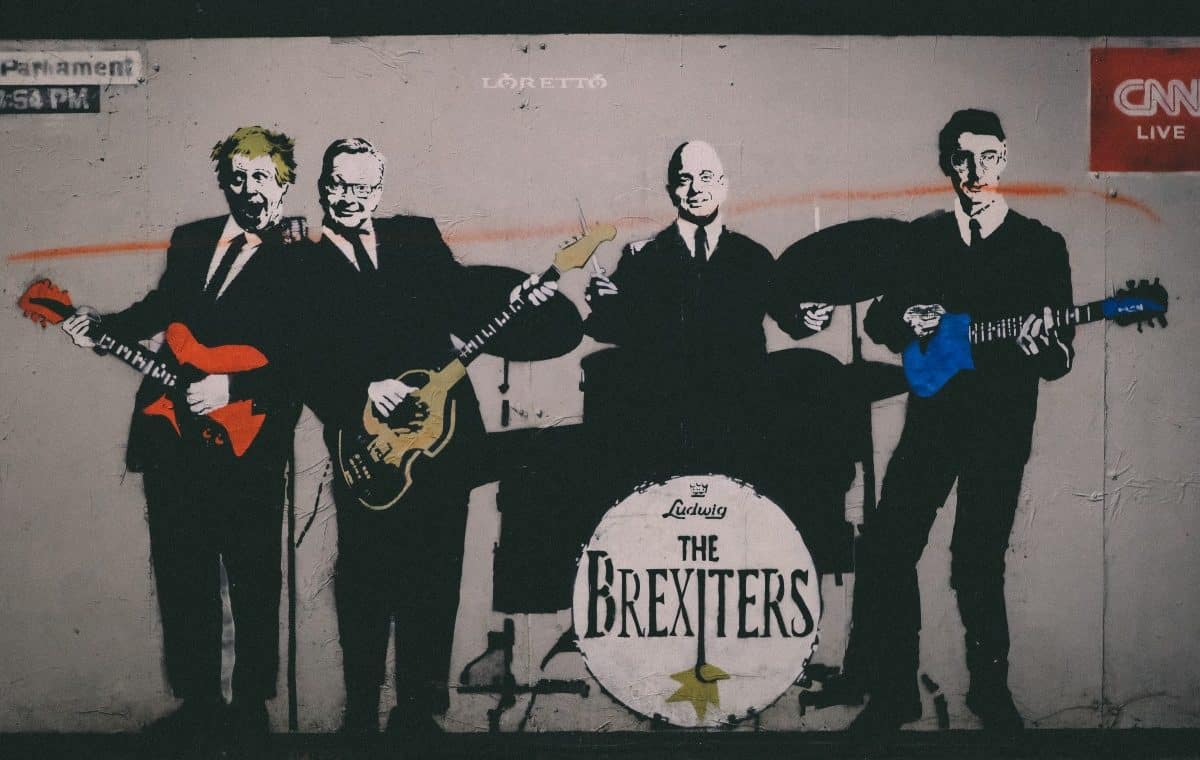Andreas Buerki, Cardiff University
Recent research has revealed a number of expressions that have entered everyday use since Brexit started. Terms like “Article 50”, “no deal”, “hard border” may now seem just part of life but they were seldom, if ever, used before Brexit.
New and interesting phraseological patterns have also arisen around some of these words. For example, treaty articles didn’t used to get “triggered”. Instead, they were “invoked”. But we now take as obvious that Article 50 of the Treaty of the European Union is “triggered”. In linguistic terms, this is known as a “collocation” – the idea that words are commonly used together. So, just as in English (but not in some other languages) one brushes one’s teeth rather than cleans them, one now “triggers” Article 50 in stead of “invoking” it. These patterns show that language is a system of conventional habits of expression more than a system governed by strict, logical rules. After all, there is no strict rule that says you can’t use the word “activate” or “invoke” before “Article 50”, and yet hardly anyone says that.
These new patterns have entered the grammar of English and need to be part of speakers’ linguistic knowledge if they wish to discuss Brexit (although some of these patterns might well fall into disuse once we talk about Brexit less). This shows that language can change very fast if required, despite the fact that the traditional view of language change is that grammatical patterns take hundreds of years to change.
Forced to pick sides
Language is also often far from neutral. With “trigger” becoming the usual verb to pair with Article 50, speakers are nudged into a metaphor that might well influence not only how they talk, but also how they think about this matter. This works via linguistic relativity and its conscious deployment is sometimes referred to as framing. Once something is triggered, it cannot be untriggered – the outcome is final. Compare with the invoking of something, which leaves the option of revoking it, or the activation and deactivation of something.
Phraseological patterns have also emerged around the word “deal” during the negotiation phase. In addition to “no deal” itself, these include expressions like “in the event of no deal”, “no deal is better than a bad deal”, “oven-ready deal” and others. Terms like these arguably cast negotiations in a context where it is fine, even expected, that the two parties barter and seek only their own advantage without regard for other aspects such as the common good. Compare this with the concept of “agreement” that was at the centre of EU negotiator Michel Barnier’s early use of “withdrawal agreement” and “future agreement”.
Like “deal” vs. “agreement”, many Brexit expressions come in opposing pairs offering competing conceptualisations. This speaks to the divisiveness of the topic and the impossibility of neutrality. Speakers have had to take sides also, for example, when choosing between legitimate “red lines” and illegitimate “cherry picking” (an old expression that has gained new prominence).
We can see how phraseology and language can become a battleground. Moreover, once a certain phraseological expression is established as the usual way to express an idea, it is very difficult to avoid using the expression (and reinforcing its way of thinking), regardless of whether one agrees with its conceptualisation of reality. Even Barnier now also uses “deal” patterns of speech.
Masking complexity
One expression that has no ideological rivals is “hard border”, found in patterns like “avoid a return to a hard Irish border”. The word “hard” here invokes negative connotations (perhaps stemming from the human experience of the unpleasantness of bumping into physically hard objects). The undesirability of such a border on the island of Ireland (which might violate the Good Friday Agreement) has been one of the few universally agreed upon matters of Brexit.
But the “hard border” is typical of many Brexit expressions in another sense: it is a handy term that hides a lot of complexity. Others among the plethora of phrases (most of them deliberately coined) that simplify or hide this complexity are not only the “oven-ready deal” which simplifies away the difference between the withdrawal agreement and the agreement on the future relationship between UK and EU. They also include “take back control of [insert almost anything here]”, “Brexit means Brexit”, and others. The contrast between these and the technical terminology of Brexit (for example, “the single market and customs union”, “transition period” or “regulatory divergence”) is stark. Depending on which expression one hears, one might wonder why the UK can’t just get out or despair at the chaos unleashed by Brexit.
Brexit has dominated discourse for years by this point. And while that period of history may be coming to an end, it leaves a legacy of colourful expressions and perhaps a new awareness among speakers that language is a battleground rather than a tool for labelling an objective reality.
Andreas Buerki, Senior Lecturer, Centre for Language and Communication Research, Cardiff University
This article is republished from The Conversation under a Creative Commons license. Read the original article.












